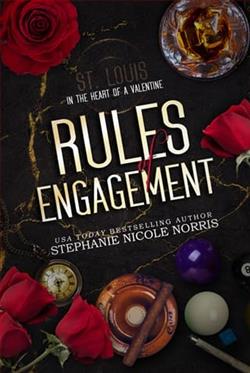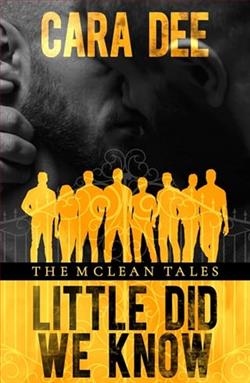Page 181 of Secrets Beneath the Waves
I hold it up and shoot him another smile. “Believe it or not, it makes sense in my head.”
He smiles back. “I believe you.”
“Building trust with an asset takes time and has to go both ways,” I start. “It took a while for Oumar and me to find the place where I believed he was telling me everything, and he believed I had his back. That’s why I’m questioning why he didn’t come to me if he was in trouble. If he’d been able, I think he would have. If nothing else, he would want me to protect Mariam.”
“Can we start at the beginning?” Graham asks, taking a sip of his coffee. “Why did he come to the CIA in the first place?”
“Hawke was his first point of contact before he was given to me as an asset. Interpol and the CIA have been trying to halt the supply routes off and on over the years, but for the most part North Africa isn’t a priority.”
“Except when it affects Europe or the States.”
“Exactly. The other issue has been finding the right person. Oumar ended up being the perfect asset, and up until this point he’d been feeding us detailed information that’s almost impossible to get. Access and knowledge of the trade routes and insight as to how they work. A growing list of intel on who runs them. And on top of that, he had motivation.”
“So his involvement with the CIA was personal.”
“Very.” I hesitate, still unsure if I’m actually on to something or wasting our time.
The bottom line is, if we’re going to find Oumar, we don’t have time to chase a bunch of rabbit trails, but we also have to start somewhere. Which leads me back to the one thing Oumar told me that I haven’t been able to shake.
“Oumar shared with me some things about his past recently,” I say. “I knew he’d grown up in a difficult place, and that he’d lost his family due to the violence, but there were details he never told me before. Details I think might matter now.”
“Okay,” Graham says, leaning forward.
“Back while he was still living in Mali and helping his father run the business, he quickly made a name for himself,” I begin. “They called him ‘the Broker.’ Thanks to his education, hard work, and the negotiation skills he learned from his father, he came to know the routes of the Sahel better than most. He knew how to navigate within the system to get what he wanted, like running trucks past checkpoints and making deals with opposing militia syndicates. They paid him for his silence as much as for his skill, and he told me he’d once been fine selling both. Until everything changed for him.”
Graham nods then leans forward, completely focused on my story.
“Oumar had a sister who got married during that time. Like most families, they planned a huge celebration that ended with a dinner at his family’s large compound.” I clear my throat before continuing. “Near the end of the dinner, while surrounded by dozens of friends and family members, a bomb went off. Oumar survived, but his sister and her new husband died along with half of his family who were there for the wedding.”
“Wow.” Graham is quiet for a long moment. “I can’t even imagine.”
“It gets worse. Oumar found out that he was the one who arranged transport of the bomb parts that were smuggled intothe country. He could no longer be complicit with what was going on.”
“No wonder this is all so personal.”
“Not long after that he ended up contacting the CIA. The deal was that he feeds us locations and names and dirty money trails in an attempt to shut down the routes, and we keep him safe.”
And now, apparently, we’d failed to hold up our end of the deal.
“Did they ever find out who was behind the bombing?” Graham asks.
“No one took credit, and either the police never found out who was behind it, or they were paid off.”
Graham takes a moment to digest the information I’m giving him. “So if one of them found out Oumar was trying to disrupt their supply routes, or even worse, that he was handing over information to the CIA, they would have motivation to stop him.”
“Exactly. The intel Oumar was gathering was extensive. He was compiling detailed maps and GPS coordinates of trafficking routes as well as a list of law enforcement, military, and customs agents who were on the cartel’s payroll. On top of that were names of cartel leaders and facilitators who were operating under legitimate businesses. Basically, he was playing with fire.”
I rub the back of my neck. “I was starting to sense that he needed to get out, but he was convinced that there was still more information he could retrieve. He was working on a list of shell companies that are laundering profits through crypto wallets and luxury real estate. He kept promising me that once he got that information he would walk away.”
And now it might be too late.
“Okay. . .” Graham clasps his hands together, his coffee and breakfast forgotten. “If they missed an opportunity at thewedding, why not just get rid of him now? Why kidnap him, if that’s really what happened?”
“The CIA aren’t the only ones who want the information he’s been compiling,” I say. “It’s possible someone is after the information he has. It would give a competing syndicate a huge advantage.”
“You’re the intelligence officer,” Graham says. “What does your gut say?”
“I can’t rely on my gut.”















